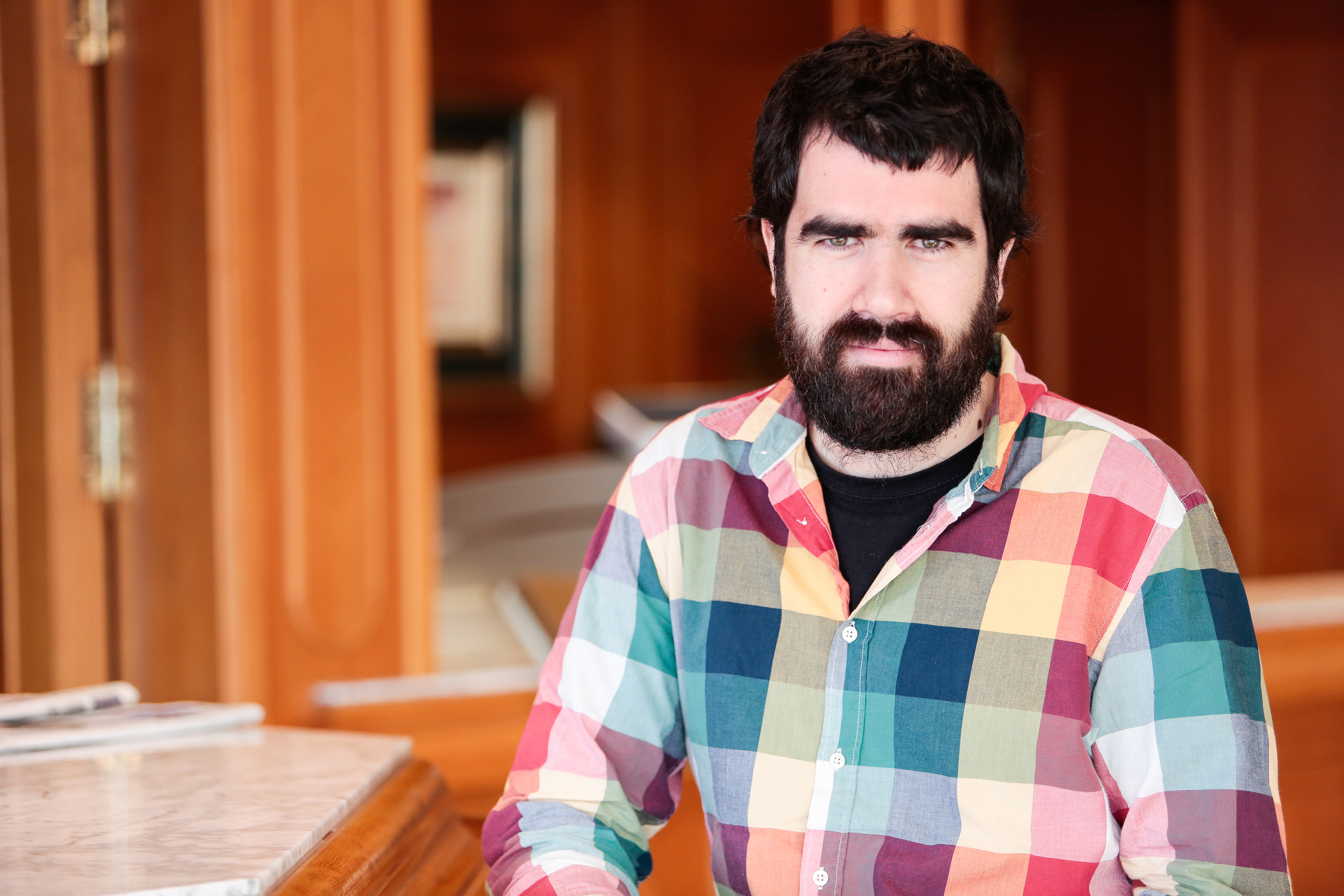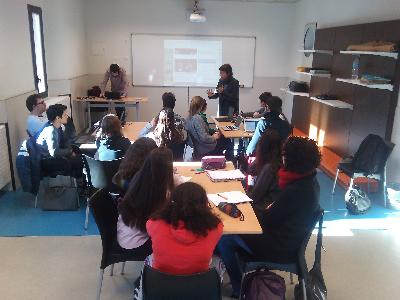Collective residencies / HUMANITIES III / Olot
ÀLEX HINOJO
From Sunday, 15 January 2017 to Sunday, 22 January 2017

Bio
Àlex Hinojo (Barcelona, 1980) also known as Kippelboy. He is a cultural programme manager and free knowledge activist. He has a degree in business administration and postgraduate degrees in cultural projects management and museum management. I’m specialized in online cultural outreach, using open platforms, especially Wikipedia. I’ve worked with the biggest museums, libraries, archives and universities of the Catalan speaking Areas. Also at an international level, trying to spread the potential benefits of collaborative working and open knowledge. I currently work as a programme manager at Amical Wikimedia.
Project
During my stay at Faber, I will study how Faber is linked to the physical space, and I will collaborate increasing the digital presence of the residency on the Internet. On the other hand, I will improve the documentation regarding the other residents, trying to lengthen their link with the Catalan culture further than their period of residence. I also like the idea of sharing the activities we carry out on a page of my wikiproject.
Faber, a Cultural Model
The Faber Residency (from the Latin faber, meaning ‘artisan’, ‘worker’ or ‘smith’) is an arts, sciences and humanities residency located in Olot, which officially opened in autumn 2016 and is run by Francesc Serés. For a couple of days in January 2017, I had the good fortune to experience at first hand what is, in my opinion, one of the most interesting cultural initiatives being undertaken today in Catalonia. I shall try to provide arguments to support this statement below:
1) Its budget is allocated to the project, not the infrastructure.
Pepe Serra, director of the National Art Museum of Catalonia, often explains that “to open the blinds” of the museum costs more than 85% of the annual budget, leaving him little room for programming. We can all think of examples of interpretation centres, and local and county museums with excessive building costs, but with no budget allocation to carry out the associated cultural project.
Faber emerges from a cultural proposal with minimum infrastructure. It does not even have its own physical premises. It rents rooms in a hotel in Olot. What might seem like a precarious situation is in actual fact the smart optimisation of resources: the budget is fed directly back into the real local economy, which in fact affords the proposal flexibility and scalability. Faber can therefore dedicate a large proportion of its budget to making its project a reality, optimising an arts, sciences and humanities residency located in Olot but with a national scope. Making “things happen”.
In addition, Faber programmes activities in which the residents interact with the local social, education and business network, thereby facilitating interaction and exchange.
And, once the day comes that the project no longer makes sense, the space will no longer be rented and that’s it. No maintenance costs for an underutilised infrastructure will have to be covered.
2) It promotes the physical and decentralised space in a virtual and centralised world.
Today, with a laptop and an Internet connection, any space can be turned into an office or workplace. Why then “retreat” to a hotel to work for a few weeks? Well, for that reason precisely. In a “liquid” world, the ability to concentrate has become a scarce resource. Faber is a place where various creators, researchers and humanists can concentrate on their project in pleasant surroundings.
It’s not a case of another world “being possible” but that another world “exists”, less than two hours from the capital. Olot – with 10% of its municipal budget allocated to culture – becomes a framework, an example and a model of that Catalonia city, which Francesc Serés publicises so well. In the mood for nature and a much more human scale. As David Fernàndez claims, the most interesting things often happen on the margins. Go there.
3) The pleasure of conversation.
At a time in which we have all retweeted headlines without having read the news item, when nuance gives way to the dichotomy of follow/unfollow, when it’s ugly to get to the bottom of things, having a leisurely after-dinner conversation with people smarter than yourself feels invaluable. The Faber team’s success in selecting various projects and candidates made conversations possible that I have not had for years. Returning to your room having had your brain cells awakened, revisiting the conversation and creating new neural connections, adopting new points of view as your own and digesting the much talked-of alterity.
Returning home with an endless list of things to read, with the feeling that you’ve been somewhere that simultaneously acts as a spa and a gym from the intellectual standpoint.
4) Space for working… and interaction.
Without forgetting the surroundings, the setting, the people, Faber is a magnificent workspace. Who would not concentrate seeing Puigsacalm out the window of their bedroom? During my stay, I devoted my time to improving the content about Olot and La Garrotxa on Wikipedia, about its figures and its monuments. You can see the work I’ve done here. I also delivered various workshops in the city’s schools and wiki training to culture technicians in Olot, prepared a number of medium-term wiki projects in the city and even wrote the occasional article for the local press. It would have proven impossible for me to do all this work in a week without the support and the contacts of the Faber team, who have a highly pragmatic understanding of the meaning of culture and the return to society.
For all these reasons and much more, I see Faber more as a model than as a project. As you can see, Faber is ultimately an idea. Replicate it.

